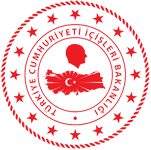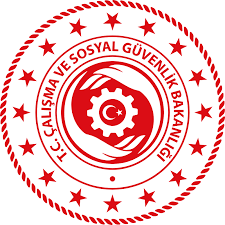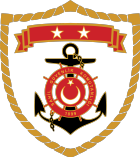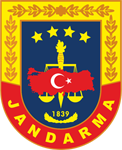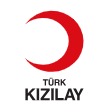

LEGISLATION
Overall Rationale
Given increasing population movements among countries, migration has become an important policy area, with its political, economic, social and cultural aspects. Mentioned population movements encompasses those entering into and leaving the country for various reasons, foreigners leaving their country of nationality or residence and migrating into another country, settling in, starting a business or seeking protection there, as well as irregular migration which is directly related to organised crimes such as smuggling and human trafficking. Turkey has encountered with considerable migration flows over the history due to its geographical, strategic, cultural and political position. While Turkey’s climbing economic power makes it an attractive place for migration movements, political instabilities in the peripheral geography is another component encouraging migration to Turkey.
Turkey was mostly a “transit country” in terms of migration movements until recently, whereas it is obvious that foreigners have started to consider Turkey as a “target country” because of its increasing economic power and stability, and accordingly migration to our country incrementally continues.
Given the number of foreigners coming to our country for various reasons, there have been sharp increases on yearly basis. Number of foreigners coming to our country in 1995 was 6.762.956, where it climbed up to 27.024.609 in 2010. While number of residence permits issued in 1995 was 84.727, it reached 176.944 in 2010. In 1995, number of applications to international protection was 2.024, whereas it went up to 8.190 in 2010. Total number of applications to international protection between 1995-2010 was 77.430. Procedures regarding 22.544 foreigners on application to international protection are underway. On the other hand, between 1995-2010, 829.161 irregular migrants were arrested. Number of arrested irregular migrants were; 11.362 in 1995, 65.737 in 2008, 34.345 in 2009 and 32,667 in 2010. Number of illegal smuggler arrested between 1998-2010 was 11.449. In addition, as for human trafficking crime which has a significant place in migration related subjects, 930 human trafficking victims were saved from human traffickers between 2005-2010 and safely sent to their countries. The date of Passport Law No. 5682 and Law No 5683 on Residence and Travel of Foreigners in Turkey governing entry into, stay in, exit and removal from Turkey of the foreigners falling outside the scope of international protection as well as their visa and residence permit procedures, removal and rights and obligations is 1950, and thus it is not adequate for up-to-date problems and developments. Moreover, no basic act is in place at international protection field, and the implementations are executed as per administrative regulations. Migration is a multi-aspect and dynamic subject which is deeply related to economic, socio-cultural and demographic structure, public order and safety of Turkey, which requires cooperation and coordination at national and international level. However, there is no public institution exclusively specialised in migration. For effective management of migration problems and as the case in international practices, a competent institutional organisation with qualified personnel and sound financial infrastructure is required, which develops and implements strategies and up-to-date policies, focuses on human rights. On the other hand, migration has an important place under “Chapter 24” in EU accession negotiations. Asylum and Migration National Action Plan issued in line with “2003 National Program for the Adoption of EU Acquis” includes legal arrangements to be effected for harmonisation of Turkish migration legislation and system with EU acquis and the measures to be taken for achieving administrative organisation and physical infrastructure, as well as investment projects under European Union (EU) accession negotiations process. 2007–2013 Ninth Development Plan includes legal and institutional arrangements in the field of migration and asylum for effective fight against irregular migration movements, and 2011-2013 Medium Term development Plan stipulates to keep working on maintaining the sensitive balance between freedom and security, efficient fight against irregular migration movements, human trafficking and smuggling as well as restructuring of border security. In the light of the mentioned plan and program documents, our international protection system and practices to that effect should be in parallel with EU Acquis, and institutional organisation should be completed in the field of migration, until Turkey is granted full EU membership. The draft legislation which was prepared considering the mentioned issues governs particularly foreigners’ entry to, exit Turkey and their residence permits. Removing the fragmented legislation, out-of-date and inadequate to addressing the problems in this field, some regulations have been introduced, which are in line with development vision of our country, international norms, considering national interests, encompassing all the related subjects with all their aspects and in compliance with good-quality legislation principles. The draft legislation will avoid the practical problems with regard to visas and residence permits. Another fundamental arm of the draft legislation is the arrangements on international protection. Differing from visas and residence permissions, there is not any law even either fragmented or out-of-date regarding international protection; this vital issue which directly affects human rights, national security and international relations are tried to be managed with administrative arrangements. The draft legislation eliminates the mentioned practical flaws. The draft legislation also provides a crystal clear legal framework for removal which has significant results as for principles of freedom and security, and lays down a sound foundation for who will be deported, when the removal decision will not be implemented and how the decisions will take effect. Since we are a party, with some geographical restrictions, to Geneva Convention concerning Legal Status of the Refugees, international protection status included in the draft legislation were governed, within the framework of the mentioned issue, as refugee, conditional refugee and secondary protection.
The requirements and procedures of international protection, accommodation facilities provided to the applicants, administrative supervision, review criteria of the application, the procedures to be considered in application, interview, decision and objection steps were arranged with due care, and binding rules for all possible stages of an international protection case were laid down. It is essential that the applicants are informed about their status and the administrative and legal remedies that they can pursue at each step of the way, and the framework necessary for smooth application process with no inconvenience was determined. It is stipulated that following the application, those granted international protection will be provided with education, job, social benefit and health-care service, and under what conditions the status will expire or be terminated were clearly laid down with relevant provisions. Another important issue is the arrangements concerning “harmonisation”, which enables the communication between the foreigners and Turkish society and will be introduced to Turkish legislation for the first time. These arrangements pave the way for the work on harmonisation of the foreigners and applicants or beneficiaries of international protection, on existence of the people in harmony with the foreigners. These provisions do not aim at limitation to migration, as is the case in some countries; they were rather flexibly designed to facilitate the co-existence of the foreigners and the society consciously and in order. The draft legislation also introduced some arrangements for the groups that are in special need, and special needs of these groups were considered. For instance, the law includes significant protection provisions for victims of human trafficking and unaccompanied minors. Within the framework of fight against human trafficking, following goals are pursued: protection of victims of human trafficking, shelters and sustainability of national aid line, ensuring more efficient operation of international steering mechanism. The last fundamental arm of the draft legislation is governing organisation, duties, powers and responsibilities of the Directorate General for Migration Management, which will be responsible for migration management, and determining its organisational and personnel structure.
The Directorate General, which will act as affiliated to Ministry of Interior, is expected to manage the migration system composing of the arrangements introduced by the draft legislation in cooperation and coordination with all the related institutions and organisations, and to assume institutional responsibility in this field. With the introduction of the draft law; (i) the field of migration, which has mostly been governed by secondary legislation, although it is supposed to be governed by law, will start to be executed via law and the arrangements to be prepared on the basis of law, and the migration system that is in line with international human rights standards will be introduced and put into implementation, (ii) strengthening and ensuring efficiency of the legal ground for fight against irregular migration, which becomes an international problem, and for regular migration, minimizing paperwork and ensuring that a migration management approach, based on coherence and credibility, prevails, (iii) an efficient and manageable migration system will be established on the basis of human rights, where the sensitive balance between freedom and safety is maintained and which is in compliance with international human rights norms and EU Acquis, legal, administrative and physical infrastructure that we need in the field of migration.
Click for Pdf version of the overall rationale.
Click for Word version of the overall rationale.


